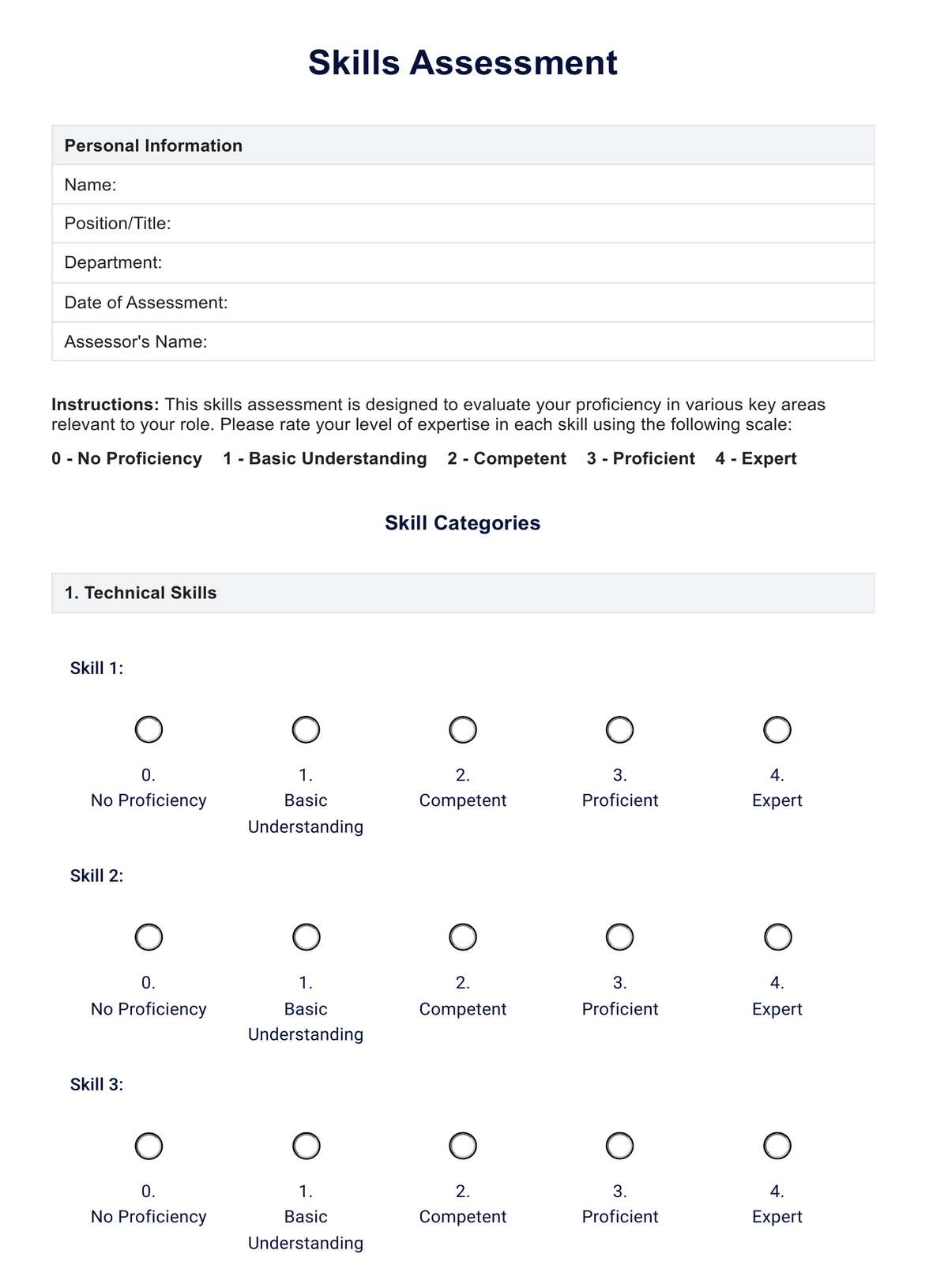Expect to evaluate various skills through a structured template process, rating your proficiency in each area.

Skills Assessment Template
Discover the importance of a comprehensive skills assessment with our free Skills Assessment Template.
Use Template
Skills Assessment Template Template
Commonly asked questions
No, it can also be used for personal development and educational purposes.
Regular assessments, such as annually, can help track progress and adapt development plans.
EHR and practice management software
Get started for free
*No credit card required
Free
$0/usd
Unlimited clients
Telehealth
1GB of storage
Client portal text
Automated billing and online payments











